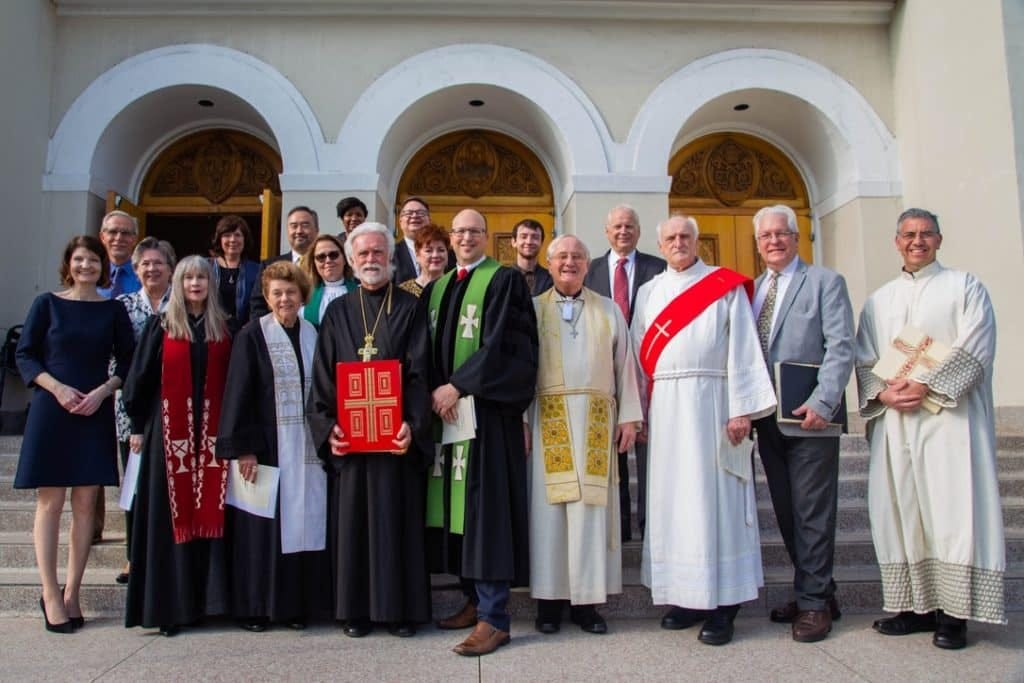A while ago, a certain magazine asked for my take on this topic. And this was my response.
In assessing success or failure, it’s a good idea to remember what we were trying to do in the first place. And the early ambitions of the ecumenical movement were rather large. Most prosaically, the Edinburgh Missionary Conference of 1910 (by common consent the starting point of ecumenism) sought to facilitate worldwide evangelism by calming inter-denominational bitterness — or at least declaring the mission fields a ceasefire zone. But wider goals included the institutional unity of the worldwide church, and a quest for world government, bringing wars between nations to an end.
It is arguable that the most modest of these goals has been achieved, or at least approached. But even that success has been rendered largely redundant during the past century by the growth of the missions themselves. Christians in the global south now outnumber those of the West by a long way; now they are masters in the their own houses, it is not at all clear that (for example) Catholic-Pentecostal relations in Latin America are an edifying example of smooth, brotherly accord.
As for the unity of the churches, which the WCC once confidently predicted for 1980, that has gone the way of Jehovah’s Witnesses’ predictions of the date of the Second Coming: unfulfilled; passed over in silence for a long time; and then (should anyone be tactless enough to mention it) it is quietly explained that that was not quite what was meant — all an unfortunate misunderstanding of terms.
Indeed. We have more churches than ever. And that may be a good thing.
And then there’s all that unfortunate stuff about world government. Neither the League of Nations nor the equally glorious United Nations, both spawned under the benevolent smile of the moving figures of early-twentieth-century ecumenism, have done as much for breaking down the walls between nations and religions as have, say, Facebook and Twitter. But they have at least trammelled the prerogatives of elected governments, subjecting their laws to U.N. Human Rights bodies chaired by, say, Zimbabwe. So that must count for something.
The impediments for the future are now formidable indeed.
Firstly, the denominations which ecumenism seeks to unify are at a low ebb; fewer and fewer Christians are loyal to them in the first place. Baptists and Methodists and Anglicans mingle and co-operate quite happily these days — not because of the work of the WCC, nor because Christians are more enlightened, more spiritual and nicer — but because they are vaguer and more uninformed, and because the vanishing of loyalty to institutions has affected them as much as it has their secular neighbours.
Secondly, the continued reticence of the Roman Catholic Church has always made the pronouncements of ecumenical bodies rather ridiculous. Catholics make up half, or more than half, of all Christians. Their better relations with the rest of us owe more to Vatican II, the charismatic movement, and several extremely nice recent popes than to solemn pronouncements made by committees of Protestant liberals and the non-rabid wing of the Eastern Orthodox.
Thirdly, the internet has rendered many institutions more or less redundant. And ecumenism is among them. If United Reformed members wish to set up a URC-Pentecostal co-operation group to go about Christian banjo playing in a non-denominational spirit — well, getting started is just a few mouse-clicks away; the elders need never even know, far less be handed a veto. And frankly, that’s what’s happening.
Bad man that I am, this grieves me not at all. What is wrong with me?






Possibly? because: there are over 50 breeds of sheep and there will be over 50 breeds of sheep until the earth goes up in flames. More important - much more important - than arguing about the breeds and preferences of the sheep and where they pasture is the utterly important task of keeping all of them from going to the wolves.
Besides, the idea of making one breed of sheep out of the 50+ is absurd! Many benefits come from the diversity of the breeds. And such is the way of diverse denominations, in my humble opinion.